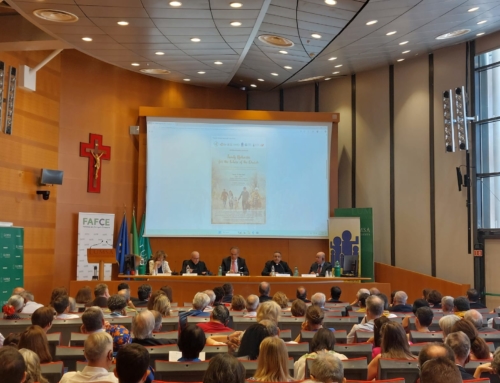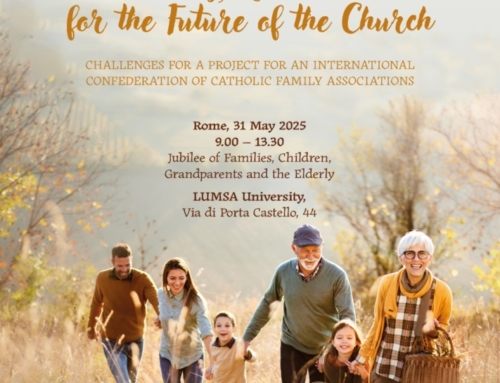16 May 2022,
On the 25th of April 2022, the Parliamentary Assembly of the Council of Europe (PACE) adopted a Resolution “For an assessment of the means and provisions to combat children’s exposure to pornographic content”. The report, carried out by the Rapporteur and Member of the French National Assembly Dimitri Houbron (EPP, France) calls for a stronger protection of children from the harms of online pornography.
“The Parliamentary Assembly is alarmed by the unprecedented exposure of children to pornographic imagery, which is detrimental to their psychological and physical development. This exposure brings increased risks of harmful gender stereotyping, addiction to pornography, early and unhealthy sexual relationships, as well as difficulties with developing balanced, respectful relationships in future life.”
The Assembly already tackled the impact of pornography on violence against children in 2020 with a Resolution on “Addressing sexual violence against children: stepping up action and co-operation in Europe” and in 2016 when treating the issue of “Fighting the over-sexualisation of children”. PACE Members also condemned the impact of pornography on violence against women in a 2021 Resolution on “Gender aspects and human rights implications of pornography”.
The Resolution thus calls Member States, among others, to
- “address the gaps in relevant legislation and practice with a view to better protecting children from exposure to such content”;
- “ensure that easy-to-use parental controls, ad-filtering and ad-blocking tools are built in by default on all devices; and are systematically activated in public spaces, such as schools, libraries, and youth clubs; support awareness-raising on the tools available, including through information from schools, training offered in the workplace and government advertising campaigns”;
- “ensure that tagging of online content as “restricted to adults” is mandatory for adult websites”;
- “develop relevant legislation to ensure that both dedicated websites hosting adult content and mainstream and social media which include adult content, are obliged to use age verification tools”;
- “ensure that respect of age restriction regulations is systematically monitored by relevant law enforcement bodies, that circumvention techniques are identified and duly tackled; and that penalties for non-compliance are swiftly introduced”;
- “ensure that the use of artificial intelligence technologies that are driving pornography addiction is investigated, monitored and regulated”;
This Resolution was adopted at the same moment of the adoption of the Second Additional Protocol to the Convention on Cybercrime (Budapest Convention), aimed at enhancing co-operation and disclosure of electronic evidence. This protocol will facilitate the fight against online child sexual abuse happening through pornographic Websites and electronic communications. The Protocol has been already signed by Austria, Belgium, Bulgaria, Estonia, Finland, Iceland, Italy, Lithuania, Luxembourg, Montenegro, Netherlands, North Macedonia, Portugal, Romania, Serbia, Spain and Sweden.
FAFCE also welcomes the focus of the PACE on the protection of the human dignity of children, and the primary role of parents as to educate and protect their children online. Members States must ensure that “education programmes at all levels promote respect for human dignity, physical integrity, and gender equality; increase parents’ and families’ awareness of the need to educate their children about sexuality in a comprehensive and age appropriate manner”.
FAFCE has been calling for a clear commitment at the level of the EU, the Council of Europe and the Member-States for the past decade, stressing pornography as a public health issue, harming children, teenagers, men, women, couples, families and overall, the entire society.
As stressed by pope Francis in its 2017 address to the participants in the Congress on “Child dignity in the digital world”, “the spread of ever more extreme pornography and other improper uses of the net not only causes disorders, dependencies and grave harm among adults, but also has a real impact on the way we view love and relations between the sexes. We would be seriously deluding ourselves were we to think that a society where an abnormal consumption of internet sex is rampant among adults could be capable of effectively protecting minors.”
For more information of the work of FAFCE against pornography:
- The Council of Europe condemns the harmful impacts of pornography (December 2021)
- European Day to End Child Sex abuse : FAFCE stresses the urgent need of a safer environment for children (November 2021)
- The impact of pornography on demography (August 2021)
- European Union Moves Forward in its Fight Against Online Child Sexual Abuse (July 2021)
- FAFCE Contributes to European Commission Consultation on Stopping Online Child Sexual Abuse (April 2021)
- Vision and commitment of FAFCE against pornography: interview for the Italian association PURIdiCUORE (March 2021)
- For Christmas we want to gift children a safer Internet (December 2020)









